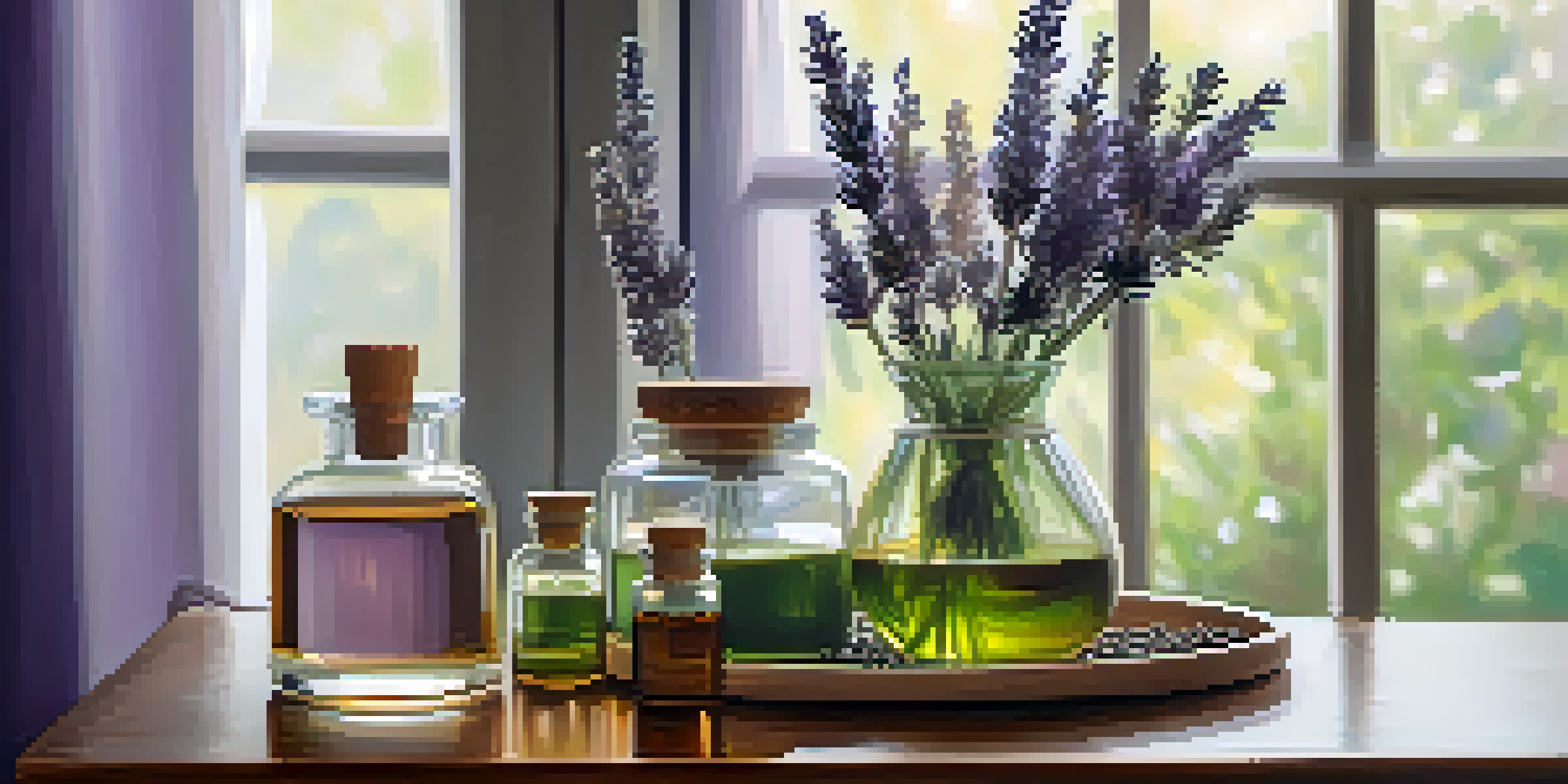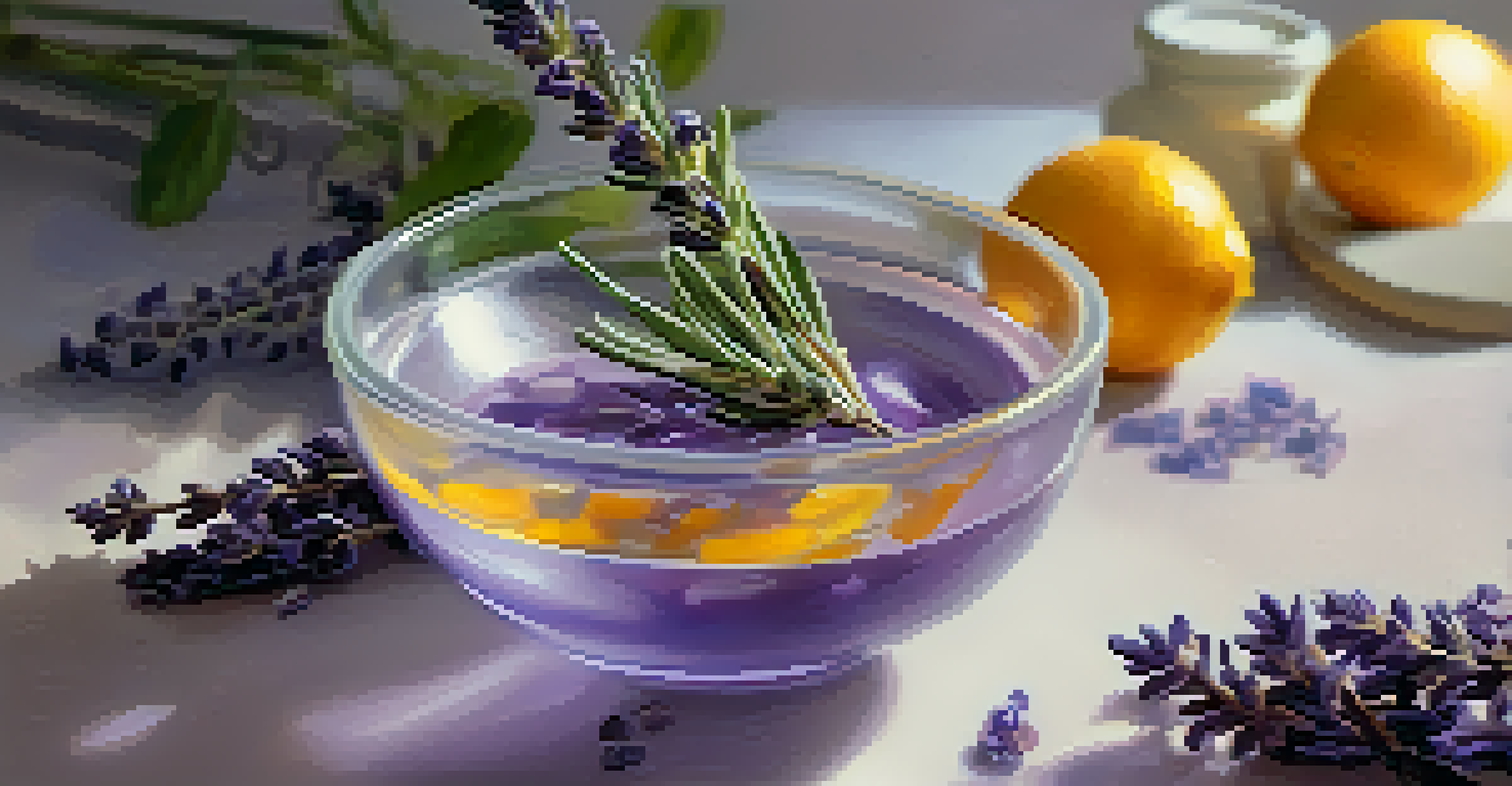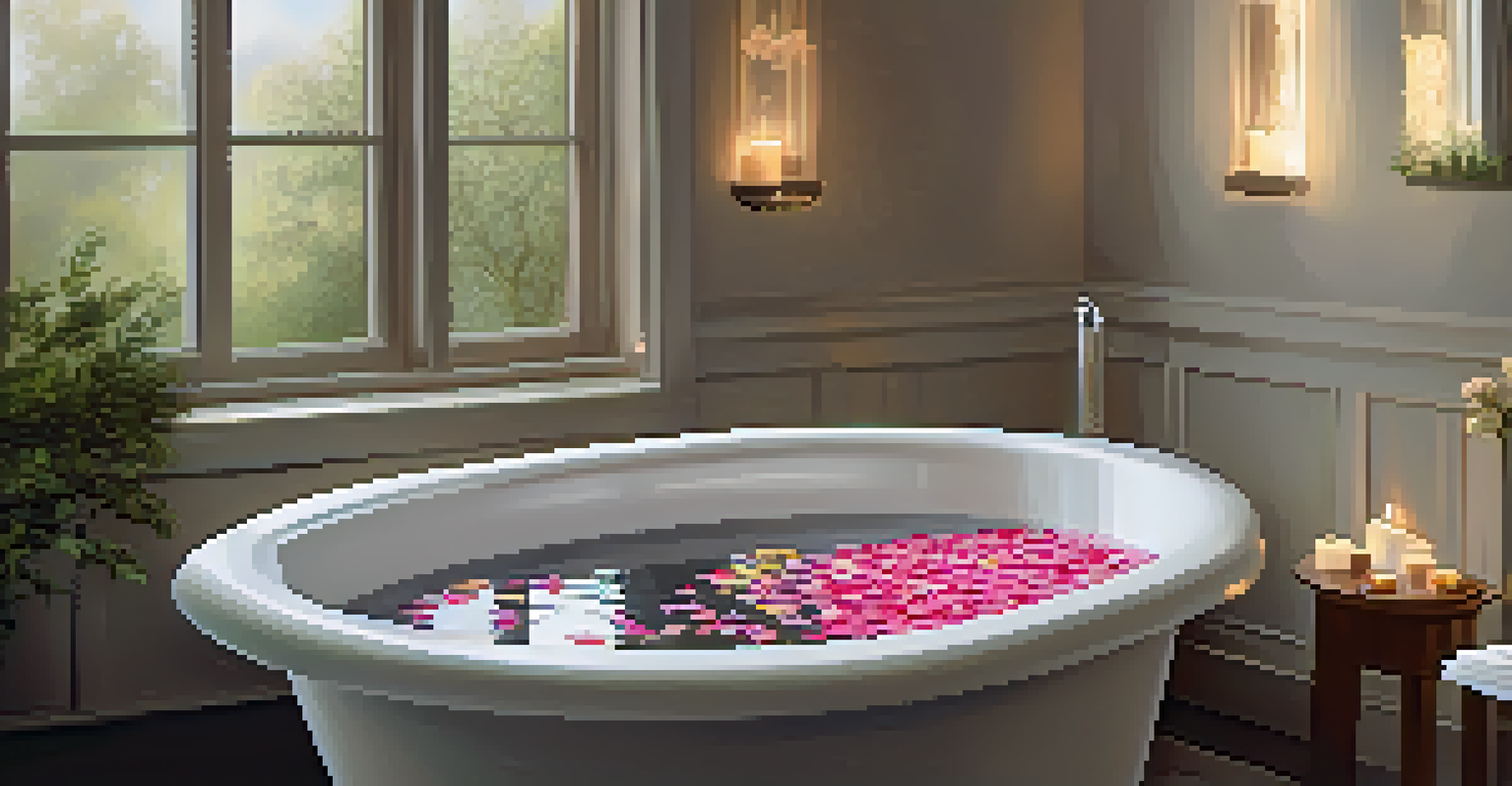The Science Behind Aromatherapy for Stress Relief

What is Aromatherapy and How Does It Work?
Aromatherapy is a holistic healing practice that uses essential oils to enhance physical and emotional well-being. These oils are derived from plants and can have various therapeutic effects. When inhaled or applied topically, the compounds in essential oils interact with your body, tapping into your sense of smell.
The use of essential oils can greatly enhance relaxation and emotional well-being.
The science behind aromatherapy lies in how these scents influence the brain, particularly the limbic system, which controls emotions and memories. This connection can evoke feelings of calmness, happiness, or even stress relief. For instance, inhaling lavender can trigger feelings of relaxation, while citrus scents can energize and uplift your mood.
By understanding how aromatherapy works, we can appreciate its potential for stress relief. It’s not just about pleasant smells; it’s about the impactful reactions they can spark within us, making it a viable option for managing stress.
The Role of Essential Oils in Stress Relief
Essential oils play a pivotal role in aromatherapy, with different oils targeting various aspects of stress relief. For example, lavender is renowned for its calming properties, while peppermint can invigorate the senses and promote mental clarity. This versatility allows individuals to choose oils that resonate with their unique stressors.

Research indicates that these essential oils can reduce cortisol levels, the hormone associated with stress. Lower cortisol levels can lead to a decrease in anxiety and a more balanced emotional state. Thus, using the right essential oil can provide not just temporary relief, but long-term benefits as well.
Aromatherapy Enhances Well-being
Aromatherapy uses essential oils to improve physical and emotional health through their therapeutic effects.
Choosing the right essential oil can feel overwhelming, but it’s about personal preference and what resonates with you. Experimenting with different scents can lead to discovering what helps you unwind after a long day.
How Aromatherapy Affects Your Brain Chemistry
The brain is incredibly responsive to scents, and aromatherapy leverages this connection to promote relaxation. When essential oils are inhaled, they stimulate olfactory receptors, sending signals directly to the brain. This pathway can trigger the release of neurotransmitters like serotonin and dopamine, which are linked to mood regulation.
Aromatherapy is a journey into the world of scents that can lead to profound healing.
For example, studies have shown that inhaling chamomile can increase the levels of serotonin, aiding in stress reduction and promoting a sense of calm. This biochemical response exemplifies how aromatherapy can provide more than just a fleeting sense of relaxation; it can contribute to long-term emotional stability.
Understanding this connection empowers individuals to use aromatherapy effectively. By selecting specific scents, you can foster a more relaxed state of mind and enhance your overall well-being.
Practical Applications of Aromatherapy for Stress Relief
Incorporating aromatherapy into your daily routine doesn't have to be complicated. Simple methods like using a diffuser or adding essential oils to a warm bath can create a soothing environment. These practices allow the scent to envelop you, providing an instant sense of calm.
Another effective approach is to create a personal inhaler with your favorite essential oils. This portable solution can be used whenever you feel stressed, making it a handy tool to manage anxiety on the go. Just a few deep breaths can ground you and help navigate stressful situations.
Essential Oils Reduce Stress
Different essential oils, like lavender and peppermint, target stress relief by lowering cortisol levels and promoting relaxation.
Integrating these practical applications into your life can transform your approach to stress management. It’s about finding what works best for you and making aromatherapy a comforting part of your self-care routine.
Creating Your Own Aromatherapy Blends
One of the joys of aromatherapy is the ability to create personalized blends that suit your preferences and needs. By mixing essential oils, you can tailor scents to evoke specific emotions or responses. For example, combining lavender with bergamot can enhance relaxation, while a blend of eucalyptus and lemon can promote energy.
To start blending, begin with a base oil, such as jojoba or coconut oil, and add a few drops of your chosen essential oils. It’s important to experiment and find the right balance that resonates with you. Remember, the process should be enjoyable and intuitive.
Creating your own blends not only personalizes your aromatherapy experience but also deepens your connection to the practice. It’s a wonderful way to explore scents and discover what brings you the most comfort and relief.
Scientific Studies Supporting Aromatherapy
Numerous studies have explored the effects of aromatherapy on stress relief, providing scientific backing for its benefits. For instance, a study published in the Journal of Alternative and Complementary Medicine found that inhaling lavender essential oil significantly reduced anxiety levels in participants.
Another research highlights the positive impacts of aromatherapy on sleep quality, which is often compromised by stress. Improved sleep can lead to better mood regulation and overall well-being, creating a cycle of positive effects.
Personalize Your Aromatherapy
Creating your own essential oil blends allows for a tailored experience that evokes specific emotional responses and enhances relaxation.
These studies underscore the efficacy of aromatherapy as a complementary approach to stress management. It’s not just anecdotal; there’s a growing body of evidence supporting its use in enhancing mental health.
Final Thoughts on Aromatherapy and Stress Relief
Aromatherapy is more than just a wellness trend; it’s a scientifically supported method for managing stress. By harnessing the power of essential oils, individuals can create a calming environment that promotes emotional balance. It’s a gentle reminder that sometimes the simplest solutions are the most effective.
Incorporating aromatherapy into your life doesn’t require extensive knowledge or expensive equipment. Whether through a diffuser, personal inhaler, or DIY blends, the possibilities are accessible and adaptable to your lifestyle.

So, if stress feels overwhelming at times, consider reaching for a bottle of essential oil. It might just be the aromatic ally you need to navigate the challenges of everyday life.